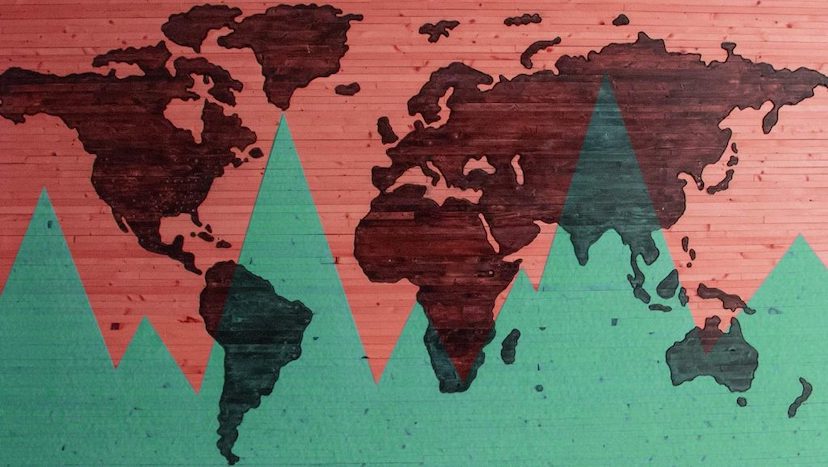Markets and the World React to Russia’s Invasion of Ukraine

Ripple Effects Across the Financial World
Russian troops have invaded Ukraine, kicking off what could be Europe’s most significant armed conflict since World War II. In response, stocks in Asia and Europe plummeted Thursday. Analysts note stocks typically sell off during times of conflict while some commodities like gold, which is sometimes thought of as a safe-haven asset, get a boost.
Other asset classes have also been impacted by the invasion. Bitcoin (BTC), Ether (ETH), and other cryptocurrencies fell yesterday. Meanwhile, given Russia and Ukraine’s role in the export of wheat, grain prices rose. The ruble, Russia’s currency, fell precipitously in the foreign exchange markets, hitting an all-time low against both the Euro and the US dollar.
Natural Gas and Oil in Focus
US consumers are most likely to feel the armed conflict’s impact at the gas pump, given Russia is one of the world’s largest oil producers. It produces 9.7 million barrels per day, second only to the US. The invasion comes as the global price for a barrel of crude has topped $100 for the first time since 2014.
Analysts explain there are a variety of ways the conflict could cause gasoline prices to spike further. These include damage to oil infrastructure as a result of fighting, sanctions brought against Russia, and even the possibility Moscow could cut exports.
Other Areas of Concern
Inflation is currently at levels not seen since the early 1980s, and Russia’s invasion has the potential to cause it to spike further. This is because rising oil prices and natural gas — another major export for Russia — mean increased heating and electricity costs. Other commodities such as metals and corn may rise in price, because Russia and Ukraine are major net exporters.
If inflation were to rise even further, the Fed would likely come under pressure to consider stepping up the pace of its planned interest rate hikes. That would mean higher borrowing costs for mortgages, car loans, and credit cards.
The market’s volatility is a result of several ongoing factors, and Russia’s invasion is a major piece of the puzzle.
Things are changing daily within the financial world. Sign up for the SoFi Daily Newsletter to get the latest news updates in your inbox every weekday.
Sign up
Please understand that this information provided is general in nature and shouldn’t be construed as a recommendation or solicitation of any products offered by SoFi’s affiliates and subsidiaries. In addition, this information is by no means meant to provide investment or financial advice, nor is it intended to serve as the basis for any investment decision or recommendation to buy or sell any asset. Keep in mind that investing involves risk, and past performance of an asset never guarantees future results or returns. It’s important for investors to consider their specific financial needs, goals, and risk profile before making an investment decision.
The information and analysis provided through hyperlinks to third party websites, while believed to be accurate, cannot be guaranteed by SoFi. These links are provided for informational purposes and should not be viewed as an endorsement. No brands or products mentioned are affiliated with SoFi, nor do they endorse or sponsor this content.
Communication of SoFi Wealth LLC an SEC Registered Investment Adviser
SoFi isn’t recommending and is not affiliated with the brands or companies displayed. Brands displayed neither endorse or sponsor this article. Third party trademarks and service marks referenced are property of their respective owners.
SOSS22022501
Comments are closed.